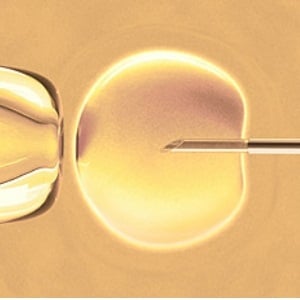
In a reassuring new finding, there appears to be no extra cancer risk among children born after assisted conception.
More than 5 million children worldwide have been born through in vitro fertilization (IVF). However, concerns that the manipulation of sperm and egg might make these children more prone to cancer prompted the British researchers to investigate.
However, the risk to IVF-conceived children was found to be "the same as naturally conceived children," said lead researcher Dr Alastair Sutcliffe, a specialist in general paediatrics at the University College London. "This is a promising sign for their future health as they grow into adult life," he said.
"[This study, which is] bigger than all the existing studies, has a powerful and reassuring message to families, fertility specialists and the public," Sutcliffe added. "Namely that in a near 100% coverage of 106 000 children conceived with IVF, the rate of childhood cancer was almost identical to that of the naturally conceived children over the same time frame."
Extremely reassuring
Although the overall risk of cancer did not rise for these children, the incidence of two less common types of cancer was higher than expected.
A US expert was pleased with the findings, which were published in the New England Journal of Medicine.
"This study is extremely reassuring and should relieve anybody's anxiety about IVF," said Dr Lawrence Grunfeld, an associate clinical professor of obstetrics, gynaecology and reproductive science at the Mount Sinai Icahn School of Medicine, in New York City.
Studies have found that most medical problems of children conceived through IVF are not a result of the procedure, but can be traced to a genetic risk for a disease or the underlying problem that caused the parent's infertility in the first place, Grunfeld said.
For the study, Sutcliffe's team collected data on more than 106 000 children born through assisted reproduction between 1992 and 2008. They then compared the number of those children who had cancer with the expected number of cancers among children in the general population before age 15.
Small increased risk
During an average of nearly seven years of follow-up, the researchers identified 108 cancers in the children, compared with the approximately 110 expected.
Among children conceived through IVF, there was no increased risk of leukaemia, neuroblastoma (cancer of nerve tissues), retinoblastoma (cancer of the eyes), central nervous system tumours, kidney cancer or the group of cancers referred to as germ-cell tumours.
There was, however, a small increased risk of two relatively rare cancers. The first was hepatoblastoma, a cancer of the liver, and rhabdomyosarcoma, a cancer of tissue that connects bones. Of the more than 106 000 children born after IVF, six developed hepatoblastoma and 10 rhabdomyosarcoma, the researchers found.
Dr Tomer Singer, an obstetrician and gynaecologist at Lenox Hill Hospital in New York City, said both of these rare cancers have very good cure and survival rates.
"This study gives you reassuring data that this technology is safe," Singer said.
More information
To learn more about IVF, visit the US National Library of Medicine.




 Publications
Publications
 Partners
Partners














